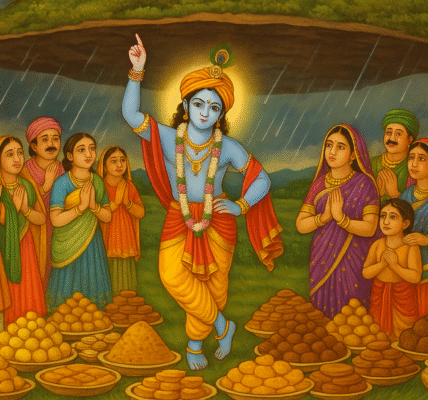Violence Erupts Across Bangladesh, Resulting in 32 Deaths and Nationwide Unrest
Violence Erupts Across Bangladesh, Resulting in 32 Deaths and Nationwide Unrest
In a stark escalation of violence, Bangladesh has been engulfed in a wave of unrest that has resulted in the tragic loss of at least 32 lives. The recent turmoil, which has spread across the nation, has raised serious concerns about public safety and the stability of the country. Prime Minister Sheikh Hasina has responded with a decisive crackdown, accusing saboteurs of inciting the violence and imposing a nationwide curfew in a bid to restore order.
The Surge of Violence

The violence erupted unexpectedly, with reports indicating that clashes between protestors and security forces quickly spiralled out of control. Demonstrations, initially sparked by grievances over political and economic issues, have morphed into widespread unrest. The chaos has been marked by intense confrontations, vandalism, and arson, severely disrupting daily life in many cities.
The violence has been particularly acute in urban centres, where protests have turned into street battles between demonstrators and police. The situation has been further exacerbated by the presence of organized groups believed to be deliberately stoking tensions to achieve political aims.
Bangladesh Government’s Response

In response to the escalating crisis, Prime Minister Sheikh Hasina has placed the blame squarely on what she terms “saboteurs” who, according to her, are intentionally trying to destabilize the country. In a televised address, she condemned the violence and pledged a rigorous crackdown on those responsible. Hasina’s administration has also enacted a nationwide curfew, restricting movement to curtail further unrest and restore public order.
The curfew, which has been implemented in several phases, is aimed at controlling the surge of violence and preventing further casualties. The government has also deployed additional security forces to enforce the curfew and maintain peace. Despite these measures, the unrest has continued to spread, leaving many regions in a state of uncertainty and fear.
Implications for Public Safety and Stability
The violence and subsequent curfew have had significant implications for public safety and the overall stability of Bangladesh. The curfew has disrupted daily life, including essential services such as healthcare, transportation, and commerce. Businesses have been forced to close, and schools have been shuttered, leaving families and individuals grappling with the immediate impact of the unrest.
The international community has expressed concern over the situation, with calls for restraint and dialogue. The unrest could also affect Bangladesh’s economy, particularly if the violence continues to deter investment and disrupt trade.
Moreover, the ongoing instability could have long-term consequences for the country’s political landscape. The government’s response, while aimed at restoring order, may also contribute to further polarization if not managed carefully. The situation has prompted a debate about the balance between maintaining security and respecting democratic freedoms.
Looking Forward
As Bangladesh grapples with this crisis, the path to resolution remains uncertain. The government’s measures, including the curfew and increased security presence, are intended to curb the violence, but the underlying issues driving the unrest need to be addressed to achieve lasting peace.
The international community continues to monitor the situation closely, urging both the government and the opposition to engage in dialogue to find a peaceful resolution. For now, Bangladesh faces a challenging period as it seeks to restore stability and address the causes of the unrest that has shaken the nation to its core.
As the country navigates this turbulent period, the resilience of its people and the effectiveness of the government’s response will be crucial in determining the future trajectory of Bangladesh’s path to peace and stability.
More Interesting Articles
Fortifying Abraham Alliance: Israel’s Strategic Response to Iranian Threats in the New Middle East
Preeti Sudan: From Esteemed Bureaucrat to Visionary Steward at the Helm of India’s UPSC
Mamata Banerjee Joins PM at Pivotal Niti Aayog Meeting Amid Opposition Boycott
Union Budget 2024: Nirmala Sitharaman Unveils Bold Vision for India’s Future
PM Modi Urges Urgent Unity and Constructive Debate Ahead of Crucial Budget Session
Bangladesh’s Shoot-on-Sight Order Amid Mounting Student Protests: A Deepening Crisis
Aishwarya Rai Bachchan and Abhishek Bachchan: Addressing Rumors of Rift and Separation
Hardik Pandya Divorce: Cricketer and Natasa Stankovic Announce Split After Four Years of Marriage
Tragic Loss: Travel Influencer Aanvi Kamdar Falls to Her Death in Gorge Accident
Supreme Court Upholds Maintenance Rights for Divorced Muslim Women Under Section 125 CrPC
Sena Leader’s Drunk Son Allegedly Driving BMW in Fatal Mumbai Accident: Sources
Rahul Gandhi: The Controversial Political Leader
Linguistic Diversity Shines: MPs Take Oath in Sanskrit, Hindi, and Other Languages
Om Birla Re-Elected as Lok Sabha Speaker: A Milestone of Bipartisan Unity
Asaduddin Owaisi’s Controversial Oath Sparks Debate on His Integrity in Parliament
Discover more from
Subscribe to get the latest posts sent to your email.











3 COMMENTS